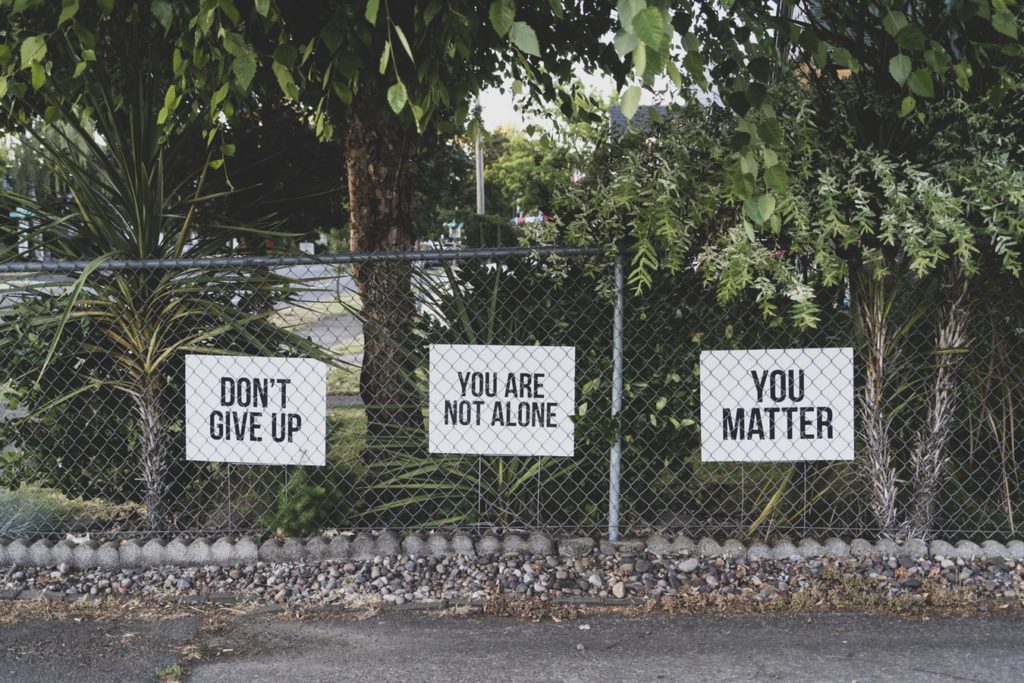Written by Rashida Simpson, Digital Campaigns Officer at UK SAYS NO MORE
The impact of sexual violence is far reaching, and knowing how to help someone who has experienced sexual violence can involve a melting pot of emotions. The act of sexual violence rips away the power from the victim and can elicit anger and frustration in the loved ones around them. However, if you are close to someone who has experienced sexual violence it is possible to claw back those aspects of control, to both support your loved one and support yourself.
1. Truly become that listening ear
Be that open ear for the person who has disclosed the incident of sexual violence to you. You will not be able to give them all the answers and this is not expected of you. In fact, it is the opposite. At UK SAYS NO MORE we encourage everyone to BELIEVE, RESPOND and REFER victims of sexual violence. If they are ready, use the Bright Sky App to share support services with your loved one, alert them to seeing a local Independent Sexual Violence Advocate (ISVA). Do not force them to seek support if they are not ready to. After being in an incident that has taken so much away from them, they must be given as much control as possible over their recovery. Just by listening, being there and being present, you are already helping your loved one in a tremendous way.
2. Believe what they say without questioning or judging
When you listen, show that you do not place any blame on them and that you are not judging them. Try not to question them too much or they may doubt their trust in you. Refrain from digging for information, it is understandable to be frustrated if you do not know how they feel. It is also frustrating not to know much about the incident itself, but they will let you know what they can when they are ready. They already trust you with this information. Be patient. Let them know that you care and that you believe them.
3. Although you may be angry, remember to care for that person and for yourself
You are bound to be angry about what has happened and feel powerless to help. It can be disheartening knowing that you cannot rid someone of the pain they have experienced. It is vital that in these moments you are also keeping an eye on your own feelings and ensuring that you maintain your own sense of wellbeing. Seek support where you can. As much as your loved one can benefit from external support, this may also be an option for you to tap into. Many services will also help the victim’s family and friends. It is only when you are well inside and out that you will be in a far more powerful position to help someone else.
4. Your loved one may not be themselves at times but show your support as much as you can
After an incident of sexual violence, the behaviour of your loved one may appear to be erratic. One moment they may appear to be ‘normal’, the next, they may appear to be different to their usual selves. They may be argumentative, withdrawn or critical with intense mood swings. If it is your partner who is a victim, they may not be willing to touch you in the same way they did before. Your partner may act in completely different in certain situations or sometimes for no obvious reason. It can be difficult to assess what is triggering for them, some interactions or experiences may bring them right back to the incident and they may not even be aware what those interactions could be. Be there for them but also remember to be there for you, be kind to yourself and find support.
5. Have those all important conversations when they are ready
It is OK to ask what would helpful for them as they try to make sense of what has happened. You may not know what to say but, if they are open, you can work through their thoughts together. They may have flashbacks or nightmares, be open to talk to them about this. On the other hand, try not to take any unwillingness to share personally. They may not be ready now or they may not ever be ready. Be mindful. Alternatively, you could also speak to them about ways in which you can help, such as attending any support meetings with them or going out and about in public with them in moments when they just don’t feel able. This can help exponentially with their confidence and wellbeing.
What is important is not only to allow time for your loved one to heal, but also yourself. Sexual violence is an act of cruelty that does not only hurt the victim but everyone they know. We hope the above has been helpful to help consolidate the feelings of all involved.
They are so fortunate to have you.







